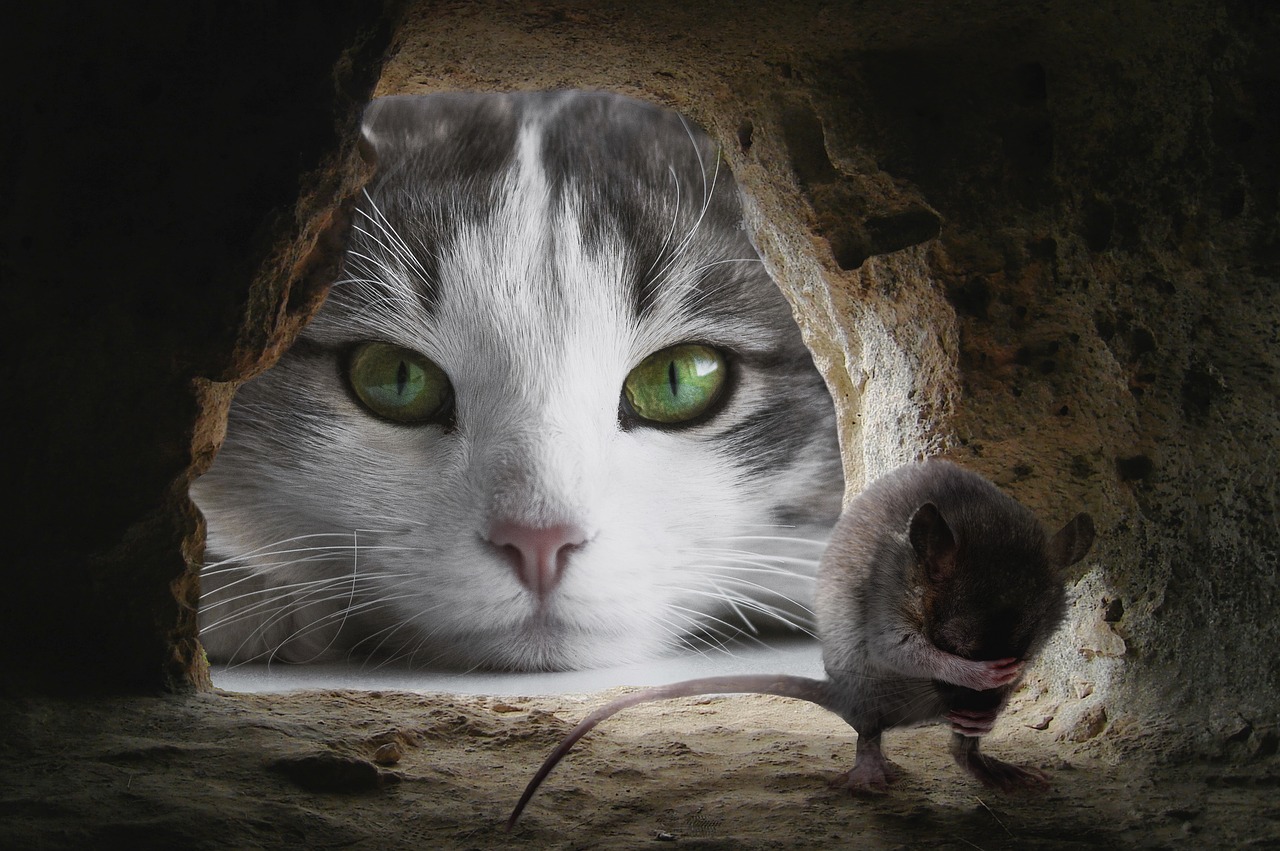Discover the top cat breeds known for their mouse-catching prowess. This guide provides insights into each breed’s origins, hunting abilities, and companionable traits. If you’re seeking a pet that doubles as a natural rodent deterrent, continue reading to find your perfect match.
Meet the Premier Mousers: Top 15 Cat Breeds for Catching Mice
1. Chartreux

The Chartreux is renowned for its exceptional mousing abilities, a trait deeply ingrained in its history. Originating in France, these cats were once prized by monks for keeping monasteries free from rodents. Their calm and gentle nature, combined with a playful but patient hunting style, makes the Chartreux an excellent breed not only for catching mice but also as a serene and loving companion.
2. American Shorthair

American Shorthairs are adept at catching mice, thanks to their ancestors who were brought to America to protect cargo from rodents. This breed’s origin traces back to early settlers from Europe, making it one of the most historically significant cat breeds in the United States. Their easygoing temperament and robust health make American Shorthairs wonderful family pets that also excel at keeping homes rodent-free.
3. Maine Coon
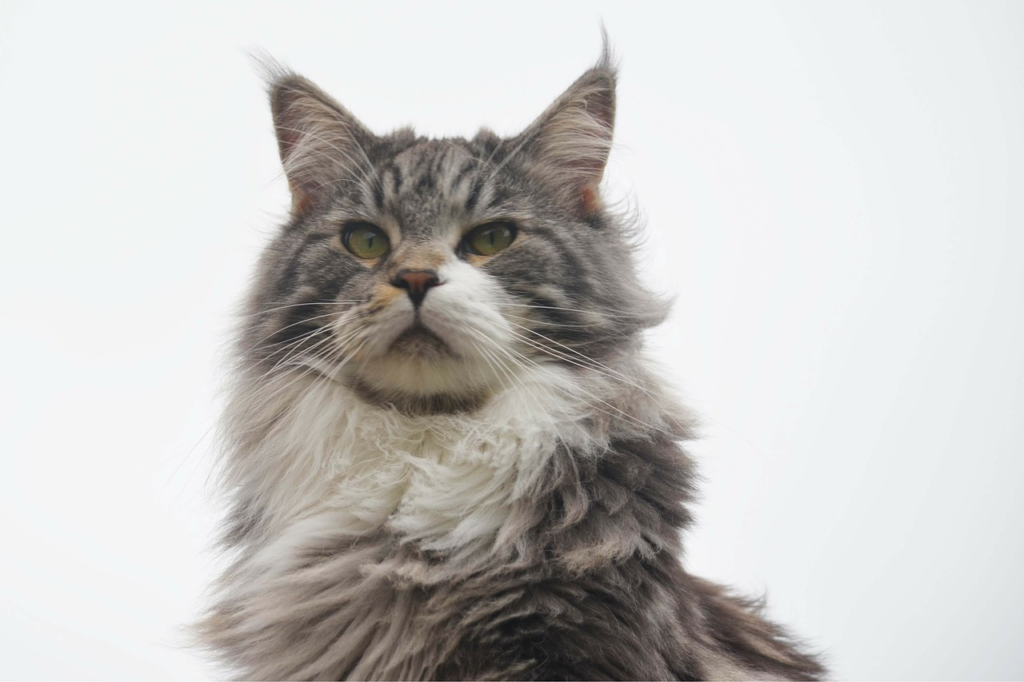
The Maine Coon, one of the largest domestic cat breeds, possesses a high prey drive that makes it effective at mouse control. Native to North America, particularly Maine, where it is the official state cat, the breed has a long history of mousing on farms and ships. Maine Coons are not just good for their hunting abilities; their friendly and sociable nature makes them excellent pets.
4. Abyssinian

Abyssinians are known for their keen hunting instincts and high energy levels, traits that make them excellent at catching mice. Originating from Ethiopia (formerly Abyssinia), their slender, muscular bodies are built for stealth and speed. Besides their prowess in hunting, Abyssinians are sought after for their playful and inquisitive nature, offering endless entertainment and companionship to their owners.
5. Bengal Cat
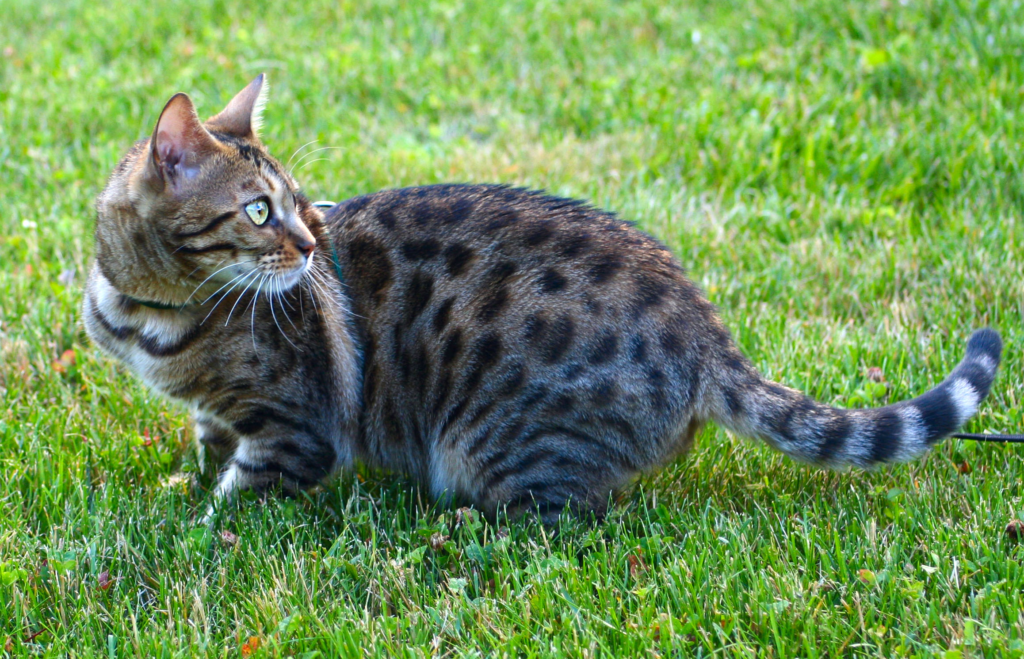
The Bengal cat, with its wild appearance and high energy levels, is naturally inclined to hunting, making it an effective mouse catcher. This breed was created by crossbreeding domestic cats with the Asian leopard cat, a combination that took place in the United States. Bengal cats are appreciated not only for their remarkable hunting abilities but also for their striking looks and affectionate behavior.
6. Japanese Bobtail

Japanese Bobtails are historically known in Japan for their hunting expertise, particularly in controlling silk worm pests in the past. Their distinct bobtail adds to their agility and speed. This breed is sociable, intelligent, and enjoys interacting with humans, making them great pets and vigilant mouse catchers.
7. Manx
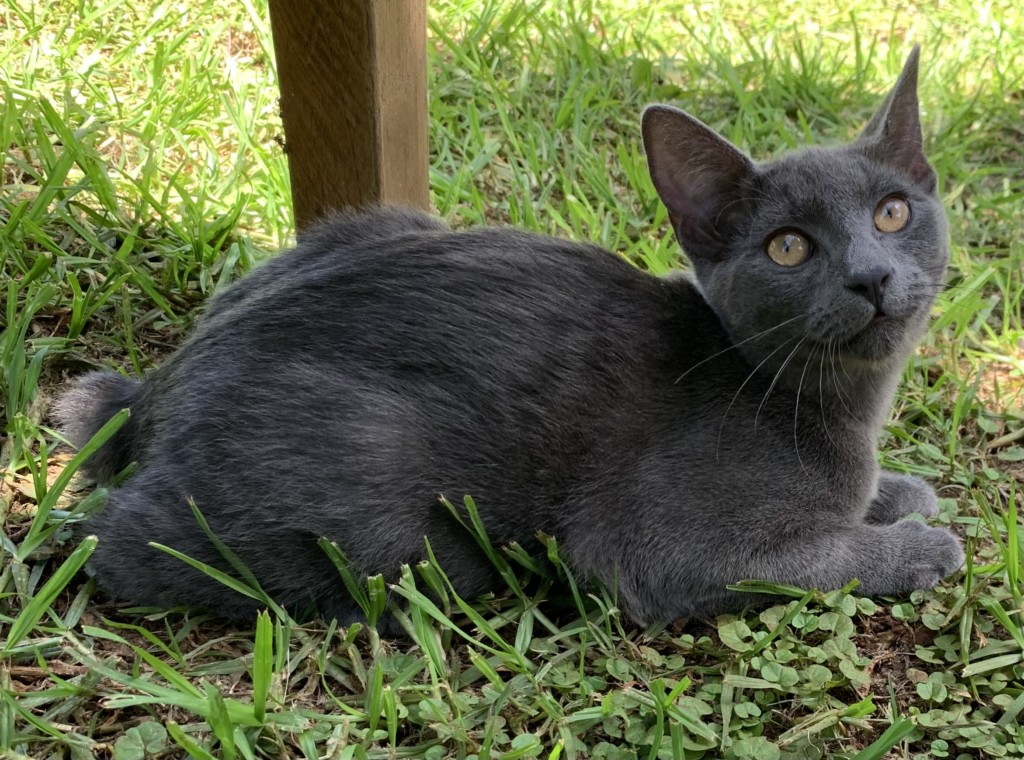
The Manx cat, originating from the Isle of Man, is known for its taillessness and exceptional hunting skills. This physical uniqueness does not hinder their ability as mousers. In fact, their strong hind legs provide an excellent springboard for catching prey. The Manx is a friendly and affectionate companion, making it a delightful pet.
8. Siberian
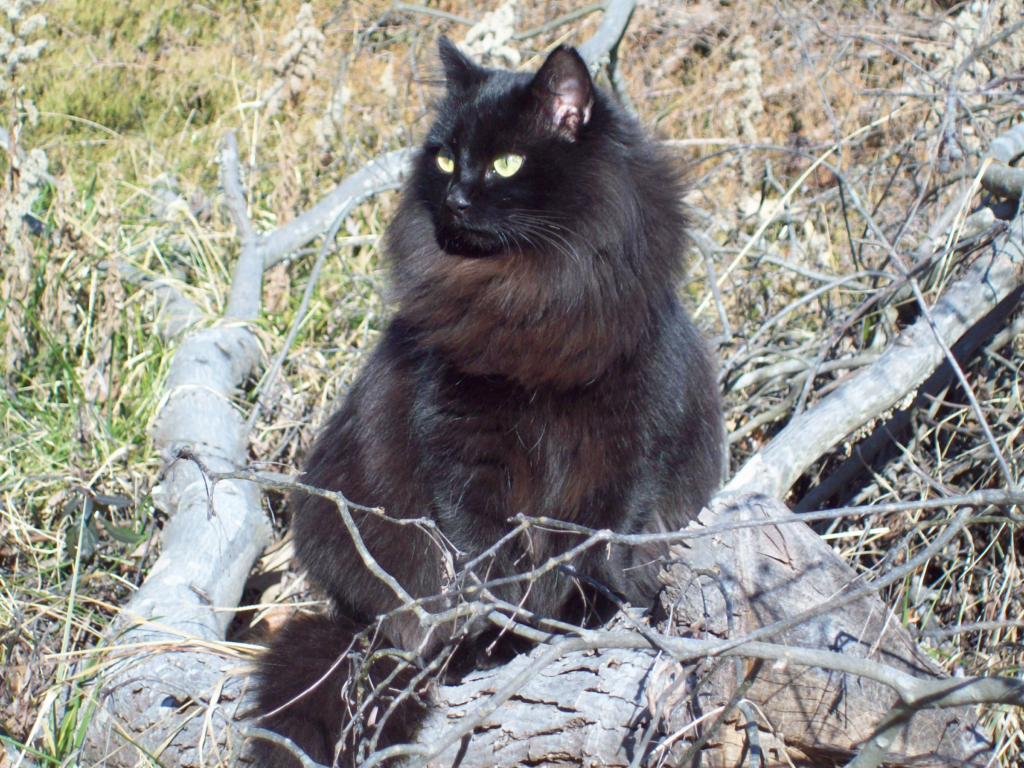
Siberians, with their dense coats and robust bodies, are natural hunters that excel in catching mice. Hailing from Russia, their abilities were honed in harsh climates, making them resilient and hardy. Siberians are not just fierce mouse catchers but also gentle giants, known for their friendly demeanor and loyalty.
9. Burmese
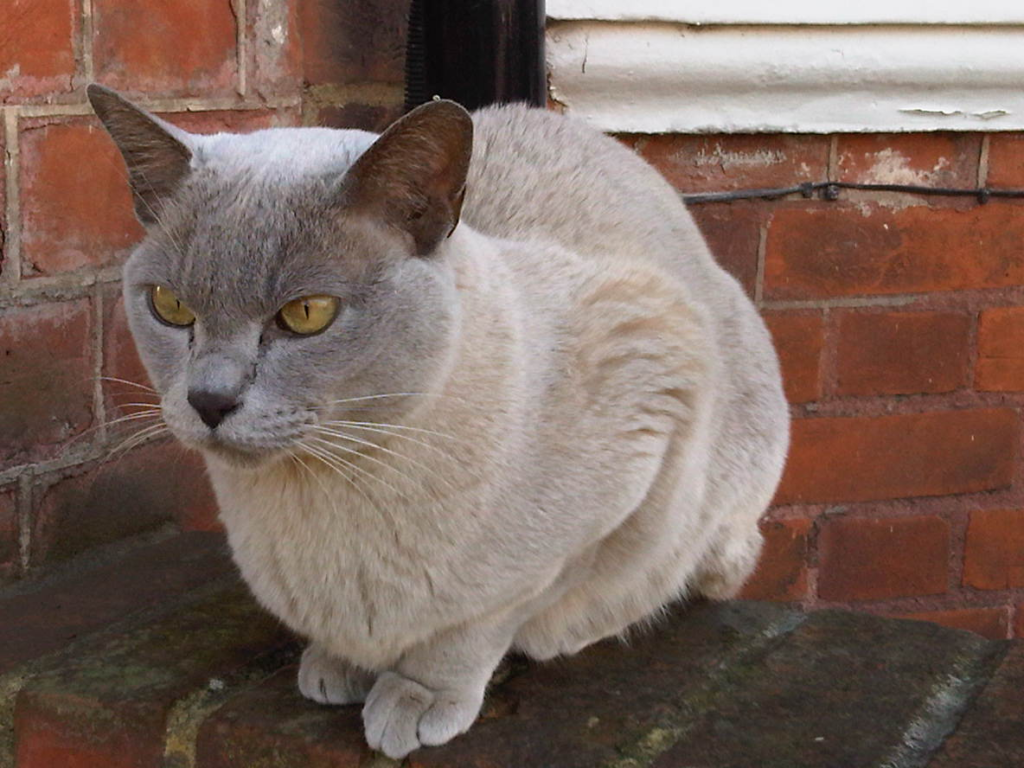
Burmese cats have a strong prey drive and love to play and hunt, attributes that make them effective at mouse control. Originating from Burma (now Myanmar) and further developed in the United States and Britain, these cats are known for their compact and muscular build. Burmese cats are also highly social, making them excellent pets who love to interact with their human families.
10. Ocicat
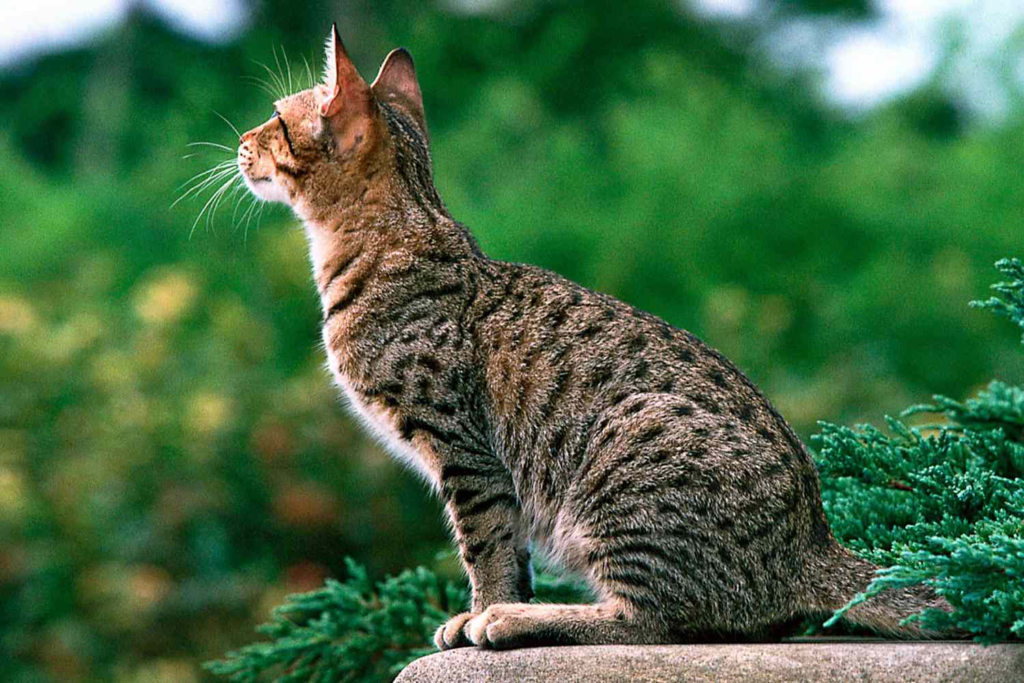
The Ocicat resembles a wild cat but is entirely domestic in temperament, including its prowess in hunting. This American breed was created by mixing Siamese, Abyssinian, and American Shorthair, aiming to achieve a wild look with a gentle personality. Ocicats are not only good hunters but also extremely sociable and affectionate companions.
11. Chausie

The Chausie is a hybrid breed, created by crossing domestic cats with wild jungle cats, resulting in a highly effective hunter. This breed, developed in the 1990s, combines the wild look with a friendly demeanor. Despite their hunting prowess, Chausies require a lot of interaction and are best suited for active families.
12. Siamese

Siamese cats are known for their striking blue eyes and elegant bodies, but they are also effective mouse catchers. Originating from Thailand, these cats are highly intelligent, vocal, and energetic, qualities that aid in their hunting. Siamese cats make excellent pets for those who appreciate a cat with a strong personality and playful nature.
13. Turkish Angora

The Turkish Angora is an elegant breed with a strong hunting instinct, making it proficient at catching mice. Originating from Turkey, these cats are not only skilled hunters but also highly sociable and affectionate companions. Their grace and friendly nature make them beloved pets across the world.
14. Tonkinese

The Tonkinese, a breed developed from crossing Siamese and Burmese cats, inherits the hunting prowess of both. These cats are known for their playful, affectionate nature and their ability to form strong bonds with their owners. As pets, Tonkinese cats are loving and enjoy being active and engaged with their human families.
15. Cornish Rex

Cornish Rex cats, known for their slender bodies and curly coats, possess a high level of energy and intelligence that makes them skilled mouse catchers. Originating in Cornwall, England, this breed is not just a proficient hunter but is also playful and affectionate, making them excellent companions who enjoy interacting with their families.
How to Train Your Cats to Catch Mice
Training your cat to catch mice can involve various steps. Here’s a simplified guide:
- Toys that Resemble Mice: Start by introducing your cat to toys that mimic the look and movement of real mice. This not only arouses your cat’s natural instincts to chase and pounce, but it also serves as a safe training environment.
- Interactive Play: Regularly play with your cat using these toys. This can involve moving the toy across the floor to mimic a mouse’s movements, allowing your cat the opportunity to chase it and pounce.
- Reward Success: When your cat succeeds in “catching” the toy mouse, reward them immediately. This can be a small treat or even verbal praise. Rewards reinforce the behavior you want them to repeat.
- Live Prey Training (Optional): Once your cat is comfortable and successful with toys, some owners may choose to introduce live prey for training. This often needs to be highly supervised and requires considering the ethical implications.
- Gradual Introduction to Hunting Grounds: If you want your cat to catch mice around a particular area like a barn or a garden, gradually let your cat become familiar with the area. Start with supervised outings and progressively give your cat more freedom.
Remember, your cat’s health and safety should be a priority. Make sure your cat is appropriately vaccinated and regularly checked for parasites. Also, consider the toll on local wildlife before encouraging outdoor hunting. Left unchecked, cats may overhunt, causing an imbalance in your local ecosystem.
Frequently Asked Questions
Do Cats Keep Mice Away?
Yes, cats can help keep mice away. This deterrent effect can be attributed to their natural predation instincts and the fact that mice can detect the presence of cats, which may discourage them from entering an area. Studies have shown that even the scent of cats can act as a repellant to mice. However, it’s important to note that not all cats have the same interest in hunting, and their effectiveness can vary based on the individual cat’s behavior and experiences.
While a cat’s presence can deter mice, some additional measures can strengthen your home’s defense against these rodents. Sealing gaps and cracks, maintaining a clean environment, and eliminating food debris that could attract mice are effective complementary strategies. Research has indicated that a single cat can catch between 12 and 20 mice per year, which demonstrates that cats can be quite efficient in controlling local mouse populations.
Can Mice Make Cats Sick?
Yes, mice can potentially make cats sick by transmitting various diseases. While cats are natural hunters that often catch and eat mice, this interaction can pose several health risks. For instance, toxoplasmosis is one of the most common parasitic diseases that cats can contract from consuming mice. Other diseases that mice may transmit to cats include salmonella, leptospirosis, and hantavirus, which can lead to symptoms such as gastrointestinal problems, respiratory infections, and fever. Additionally, while not directly a disease transmitted by mice, cats can be exposed to poisons designed to control rodent populations, which can result in secondary toxicity for the cats.
It’s important to note that while diseases can be transmitted from mice to cats, some of these illnesses can also be zoonotic, which means they can be passed from cats to humans.
Are Female Cats Better Mousers?
Based on the information provided, it is widely believed that unspayed female cats could potentially make more effective mousers compared to their male counterparts. This theory originates from the behavior observed in nature, where the maternal instinct drives female cats to teach their kittens how to hunt, thereby sharpening their own skills in the process. Moreover, like lionesses in the wild, female cats may need to hunt not just for themselves but also for their offspring. However, this does not imply that male cats are not good hunters. They are also effective, but the nurturing role of females may give them an edge in terms of consistent hunting behavior.
Should I Stop my Cat from Killing Mice?
Deciding if your cat should continue hunting mice involves considering cat and public health, as mice can carry diseases and parasites harmful to both. Mice, if poisoned, can be hazardous to cats upon ingestion. It is natural and healthy for cats to hunt, but one should also consider its impact on local wildlife. Indoor interactive play or environmental enrichment can help satisfy a cat’s hunting instincts safely. Additionally, local laws regarding outdoor cats should be regarded. Seeking advice from a vet or a pet behaviorist can provide further guidance if you’re unsure about your cat’s hunting behavior.
Purr-fect Predators: Summing Up the Ultimate Mouse Catchers
In conclusion, while many cat breeds exhibit a keen instinct for hunting and catching mice, the top 15 breeds we’ve discussed stand out for their exceptional skills, adaptability, and instincts in this area. Whether you’re looking for a cat to help control a rodent population in a barn, or you’re simply fascinated by the natural prowess these animals display, choosing a breed known for its mousing abilities can lead to a successful partnership. From the agile Siamese to the sturdy Maine Coon, each breed brings its unique characteristics and talents to the task.
It’s important to remember, however, that while certain breeds may have a natural inclination towards hunting, individual personalities vary greatly. A cat’s ability to catch mice is also shaped by their upbringing, training, and environment. Regardless of breed, providing your feline friend with a loving home, proper training, and the necessary care will ensure a happy and fulfilling relationship. Whether your cat becomes an adept mouser or simply enjoys the comfort of indoor living, the connection between a cat and its owner is undeniably special.

